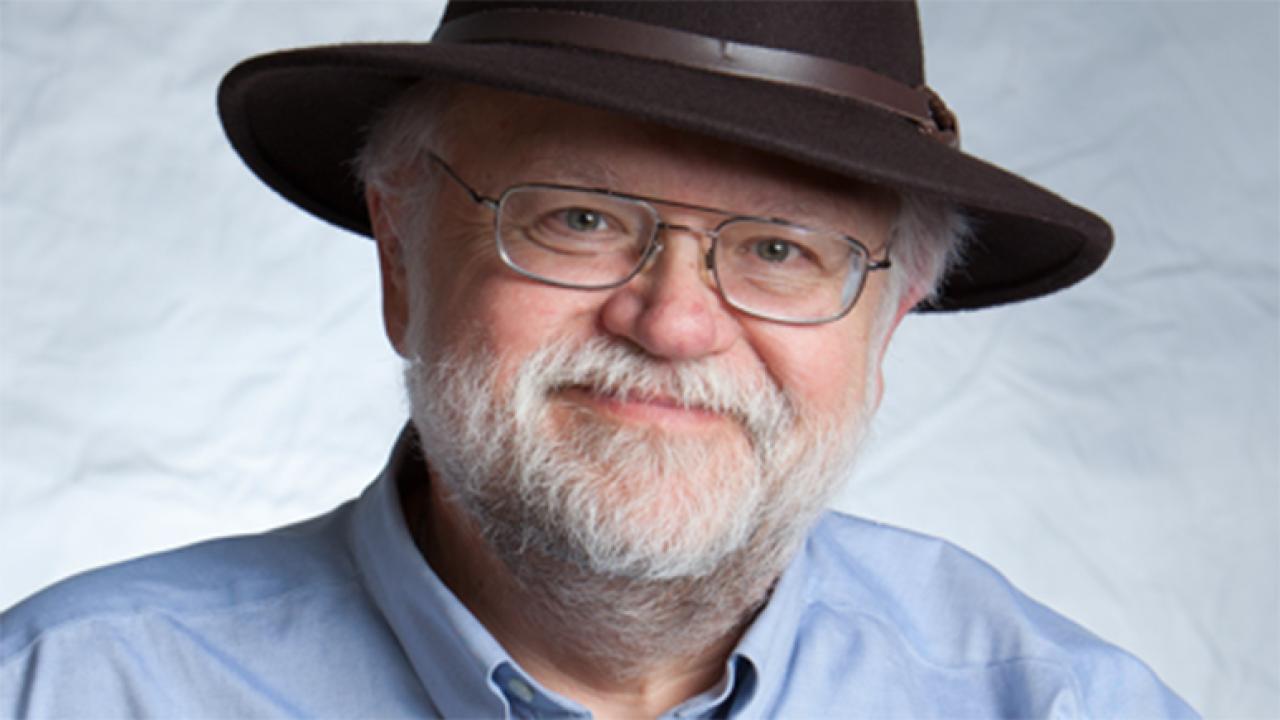The Rev. Dr. Max Johnson is many things. He’s a renowned theologian who serves as professor of liturgical studies at the University of Notre Dame, he’s the author of numerous books and articles on Eucharistic liturgy, and he’s an ordained minister of the Evangelical Lutheran Church in America.
And he plays guitar in a blues band.
Go figure.
He’s the juxtaposition of classic history and modern day hip, which makes the story of his journey from a small town in Minnesota to the land of the Fighting Irish so intriguing.
No Surprises
A native of Benson, Minnesota, Johnson said he began developing an interest in religious and theological ideas in high school. He brought that interest with him to Augustana.
“Anyone who knew me at Augie would not be surprised in the least of where I ended up,” Johnson said during a phone interview from South Bend, Indiana. “I also played in a rock-and-roll band in high school – it kept me from being too weird,” he said, laughing.
A sociology and religion major at Augustana, Johnson counts Drs. Fred Klawiter, Don Sneen, Jim Limburg, Orvis Hanson, Sheldon Tostengard and Fred Fritschel among the professors who impacted him the most as a student.
While he was serious in the classroom, he also made time for fun on campus.
“I put together a band called Jay Walker and the Pedestrians. We played for some sort of 1950s bash at which the band Big Dick and the Rat-a-Tats played,” he said. “It was in the [Ordal] Dining Room.”
Throughout his time at Augustana, Johnson said he felt a developing sense of vocation.
“In the back of my mind, I always thought [I would be] a professor of liturgy or church history either at a college, seminary or university.”
The Road to Notre Dame
After Augustana, Johnson earned his master’s of divinity from Wartburg Theological Seminary in Dubuque, Iowa, and was ordained by the ELCA in 1978. He went on to earn master’s degrees from St. John’s University (in liturgical studies) and from the University of Notre Dame (in theology) before obtaining his Ph.D. in theology, also from the University of Notre Dame.
He joined Notre Dame’s Department of Theology in 1997 and today teaches and conducts research in multiple areas, including the development, history and theology of Eucharistic liturgy, Christian initiation (baptism, first communion rites and confirmation), the feasts and seasons of the liturgical year, and how, he said, “what a church does in worship shapes what it believes.”
Beyond his teaching and scholarly research (and playing in his blues band), Johnson continues to serve churches in and around his home in South Bend.
“I’ve always kept one foot in parish ministry as well. There’s hardly a Sunday when I’m not out [in a church] filling in somewhere,” he said. “When you study something like liturgy, you don’t want to get too far from its actual practice.”
Faith Seeking Understanding
When it comes to discussing the relationship between religion and theology, Johnson is quick to point out the difference.
“You can study religion, but the task of theology is to start from within faith and go from there,” Johnson said. “You’re always seeking greater understanding of your faith commitment.”
For Johnson, seeking greater understanding has become a life-long endeavor.
“This is the tough stuff – it’s what draws me in and fascinates me. I guess because when you’re dealing with issues of baptism and the Eucharist, you’re dealing with the pulsating heart of the Christian faith and the church.”
“Liturgy is the self-expression of the faith of the church. Long before we had creeds, we had the prayer over the bread and the cup, and the prayer over the water of baptism – and that was where the church professed its faith,” he explained. “So to study liturgy is to study the church’s faith expression – in essence, the way of praying shapes the way of believing.”
The Rev. Dr. Paul Bradshaw, professor emeritus of liturgy at the University of Notre Dame, said Johnson has made profound contributions to the service of the Christian church and of the Gospel.
“Those of us who are historians always hope that what we seek to reveal about the past will influence people’s thinking about the present, but it is particularly in his theological reflection, both in the classroom and in print, where Max has gone further and stimulated his audiences to renew and deepen their understanding of the Christian faith,” Bradshaw wrote about Johnson.
Fellow members in Johnson’s band, the Oblates of Blues, likely agree. And the fact that he can play a mean guitar isn’t bad, either.
In recognition of his life-long efforts to study, share and support the Christian faith, Johnson will receive the Alumni Achievement Award during Viking Days this fall.
